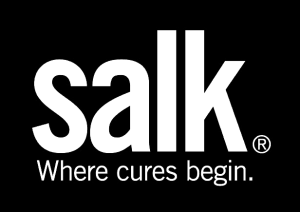Salk Institute for Biological Studies, North Torrey Pines Road, La Jolla, CA, USA

The Salk Institute for Biological Studies in La Jolla, California, is an independent, not-for-profit organization dedicated to basic research in the biological sciences – and is one of the foremost institutions of its kind in the world. Dr. Jonas Salk, the inventor of the polio vaccines, established the Institute in 1965 supported by a land grant from the city of San Diego and with financial support from the March of Dimes Foundation. Sharing the NOMIS Foundation’s focus on supporting basic scientific research and up-and-coming researchers, the Salk Institute’s scientists are not only contributing to our understanding of cancer, diabetes, infectious diseases, Alzheimer’s and other age-related diseases and processes, but are also actively mentoring the next generation of researchers and scientists. Their practice of making research results widely available and of focusing on the public good makes the Salk Institute a perfect example of the kind of collaboration the NOMIS Foundation is actively pursuing and cultivating around the world.
NOMIS funded a new laboratory at the Salk Institute, the NOMIS Center for Immunobiology and Microbial Pathogenesis, which focuses on gaining new insight into autoimmune diseases, and human metabolism and its dysfunctions. The NOMIS laboratory is staffed by highly respected researchers, including Janelle Ayres, Ye Zheng, Björn Lillemeier and Greg Lemke.
In 2018, Susan Kaech joined the Salk Institute as NOMIS Foundation Chair and director of the NOMIS center. Kaech studies how immune cells — called T cells — remember infectious agents our bodies have previously encountered in order to mount a more rapid response the next time we’re exposed to them. Kaech received her PhD from Stanford University, CA, United States, and her BS from the University of Washington in Seattle. Prior to her appointment at Salk, she was the Waldemar Von Zedtwitz Professor of Immunobiology at Yale University in New Haven, CT, United States.
“The research that people are doing at Salk is spectacular — really cutting-edge — and the tools that the labs are using to answer questions are very powerful and exciting,” Kaech told Salk. “I hope that being at Salk will push me to think about problems in a different manner or with different technologies that may ultimately lead to new understandings or new ways of thinking about the function of our immune system.”
Take a look at the NOMIS Center feature in the fall 2018 edition of inside Salk: “The immune system: A question of balance.”